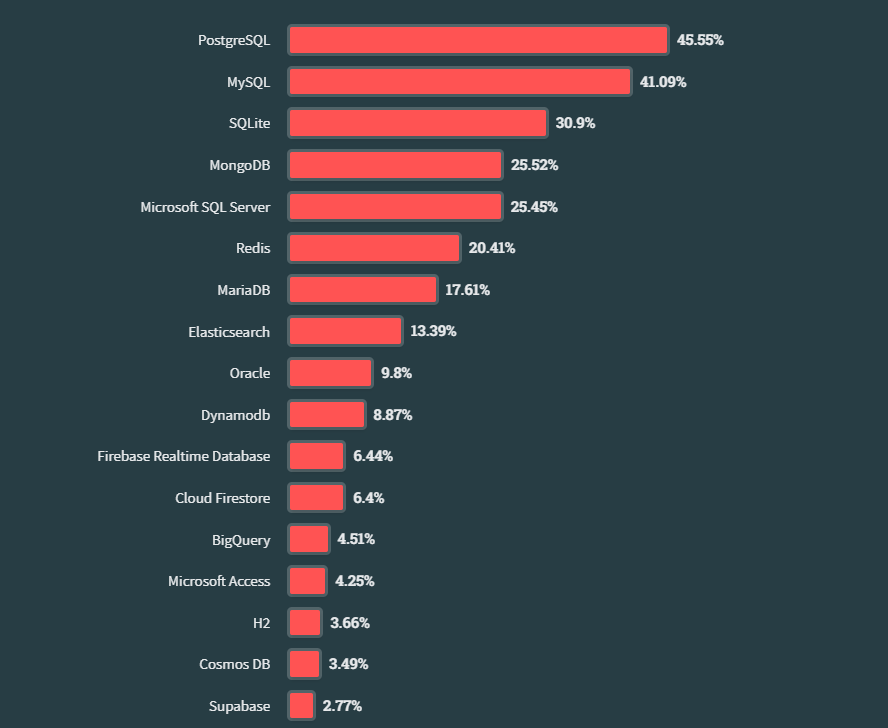- Published on
- View count
- 697 views
PostgreSQL vs MySQL - The Rising Popularity of PostgreSQL
- Authors

- Name
- Francisco Moretti
- @franmoretti_
Introduction
In recent years, the database landscape has witnessed an interesting shift in popularity. The once dominant MySQL has faced tough competition from PostgreSQL, which has been steadily gaining traction among web developers. In this article, we'll delve into the rising popularity of PostgreSQL and explore the factors driving its adoption.
PostgreSQL's Triumph in the StackOverflow Developer Survey 2023
PostgreSQL has emerged as a strong contender in the database market, challenging MySQL's long-standing dominance. According to the StackOverflow Developer Survey 2023, PostgreSQL has claimed the top spot with a remarkable 45% adoption rate among developers. In contrast, MySQL stands at 41%, reflecting a noticeable shift in the preferences of web developers.

A brief comparison of PostgreSQL and MySQL
When comparing PostgreSQL and MySQL, developers have different reasons for choosing one over the other. PostgreSQL is often praised for its feature-rich nature, while MySQL's simplicity and ease of use make it valuable for certain use cases. Here are some key features that developers consider when selecting between the two:
Advantages of MySQL
- Flexibility and scalability: MySQL offers a range of storage engines, allowing integration of data from various table types.
- Focus on speed and reliability: MySQL prioritizes speed and reliability by excluding certain SQL features. It excels in highly concurrent, read-only functions, making it suitable for certain business intelligence purposes.
- Server optimization options: MySQL provides various options for optimizing server performance by adjusting variables.
- Easy to use and popular: MySQL's popularity ensures the availability of experienced database administrators. It is easy to set up and requires less fine-tuning compared to other DBMS solutions.
- Cloud-ready: MySQL is compatible with cloud platforms, where they install and maintain the database for a fee.
Advantages of PostgreSQL
- Object-relational programming language (ORDBMS): PostgreSQL serves as a bridge between object-oriented and relational/procedural programming, allowing the definition of objects and table inheritance for complex data structures.
- Excellent for complex queries: PostgreSQL excels in performing complex read-write operations with data validation.
- NoSQL support and diverse data types: PostgreSQL is popular for NoSQL features and supports a wide variety of data types, including JSON, hstore, and XML.
- Designed for large database management: PostgreSQL does not impose limitations on database size and can handle massive data sets.
- MVCC: PostgreSQL's MVCC allows simultaneous interaction and management by different readers and writers, improving efficiency.
- ACID compliance: PostgreSQL ensures data integrity at the transactional level.
Conclusion
PostgreSQL has emerged as a formidable competitor to MySQL. Its advanced features, robustness, scalability, and cost-effectiveness have contributed to its rising popularity among web developers. While MySQL still holds a significant market share, it's essential for developers to consider the unique strengths and advantages that PostgreSQL offers. As you embark on your coding journey, explore the possibilities that PostgreSQL presents for your projects.